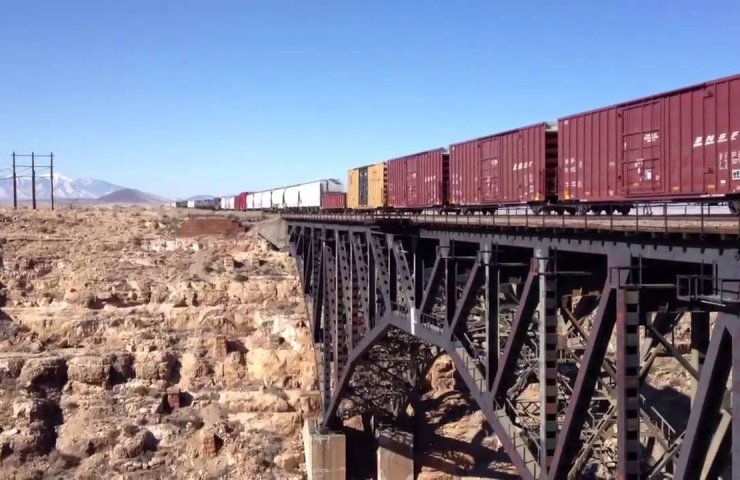A changing climate is causing physical damage to infrastructure built for more predictable weather conditions. Materials such as steel expand in hot weather and contract again at low temperatures. Designers typically factor in seasonal temperature fluctuations, but as extreme weather conditions become more prevalent, structures and materials may fall outside their design loadings.
American engineers have drawn attention to the challenges climate change can pose to the structural integrity of the country's aging transport network, which includes some 600,000 bridges.
Analysis by a team from Colorado State University shows that the authorities must rethink the priority order for repairing bridges, as climate change threatens one in four of them.
Failure to assess the integrity of bridges was tragically demonstrated last year when an Italian road bridge, built in the 1960s, collapsed without warning in the city of Genoa, killing 43 people.
Assistant Professors Hussam Mahmood and Susan Palu focused their analysis on about 80,000 steel girder bridges, a structure common in the United States since the mid-1940s, consisting of longitudinal girders that connect two vertical supports.
These bridges often suffer from clogged expansion joints and require regular maintenance. Expansion joints connect the bridge spans and allow the structure to expand and contract when the air is heated or cooled.
When connections become clogged, they prevent the bridge from expanding normally in response to higher temperatures. The researchers concluded that higher average temperatures in the future, not accounted for in the first construction of such bridges, could lead to unexpected collapse.
Thermal stress can cause warpage and cracking, which is exacerbated by both bending from the weight of trucks and cars, and axial loads due to restriction of expansion. The study is the first to quantify the effect of possible temperature changes in conjunction with the normal expected fouling of expansion joints.
The researchers looked at four different seasonal temperature scenarios during the construction of each bridge, as well as predicted average temperatures for 2040, 2060, 2080, and 2100.
The projected temperature rises are the warming scenarios adopted by the International Panel on Climate Change in 2014.
The results show that bridges located in the northern United States, including the Northern Rocky Mountains and Plains, the Northwest and the Upper Midwest, are most vulnerable to more pronounced temperature increases.
The southeastern and northeastern United States remain less susceptible.
The goal of the engineers was to line up the bridges in the order of maintenance required after taking into account the new rate of climate change.
They found that current temperature extremes are unlikely to cause major problems, but they are approaching levels that could lead to catastrophic disruptions.
The researchers argue that by 2040, the risk of collapse of each of the four existing bridges will increase, and by 2060 this figure will increase to 28 percent. By 2080, less than 50 percent of bridges will be unsafe, and nearly all of the systems studied are projected to collapse by the end of the century unless action is taken.
“We as engineers have to start looking beyond what we were originally taught about how to analyze systems and start thinking about what climate change will bring to understand our component-level behavior and performance at systems, ”said Dr. Mahmoud.




